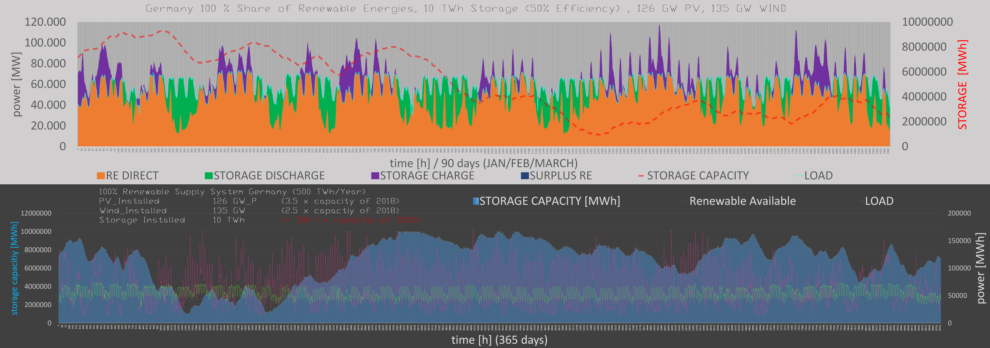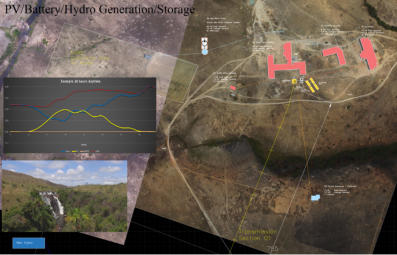




© REESSA Consulting UG (haftungsbeschränkt) 2019
IMPRINT
Renewable Energies &
Storage
Optimal Combinations of Renewables and
Energy Storage
Like every generation from renewable energies, every type from storage has its own unique characteristics. The combination of certain renewable energies and certain types of energy storage forms systems with high synergies. In practice, of course, in larger networks, different types of generation from conventional and renewable energies as well as different storage technologies are mixed. Three of the most important energy storage combinations are listed here, which form one of REESSA Consulting's main areas of work and research.Battery Energy Storage Systems and
Photovoltaics (PV)
Battery energy storage systems are becoming increasingly important investments for private users as well as for medium-sized, decentralized companies (municipal utilities, medium and low-voltage network operators) to optimize their networks. Above all, daily and periodic generation from PV can be stored profitably using battery energy storage technology. These three developments: - falling PV generation prices - decreasing battery energy storage costs and - rising electricity market prices will greatly accelerate the expansion of decentralized battery energy storage in the coming years. The simplified example presented here shows that PV electricity that is already being used today is also profitable in northern latitudes. A battery life of 20 years and PV generation costs of well below 10 cents/kWh can lead to an electricity price of below 30 cents/kWh. This even applies if there is no feed-in tariff.
Renewables Energies
Energy Storage
Simulations & Analytics
Long-Term Storage
The long-term, national goal of the majority of countries is a 100% self-sufficient supply from renewable energies. This should be a realistic target for large industrialized countries in mid-latitudes from around 2050. Compared with an 80% or 90% supply from renewable energies, the demand for long-term storage facilities (including seasonal storage facilities) will rise sharply once again with a full supply. Power-to-Gas technology offers a realistic solution for long-term storage, with a gas storage and distribution network that already exists in many countries. The low efficiency of this technology can only be compensated when there is a correspondingly large and cost-effective surplus of wind and solar energy. In the medium and long term, however, this type of storage can become a key technology for full supply.
Simplified representation of a full electrical supply for Germany with 10 TWh storage capacity
Hydropower Energy Storage
Due to its experience in the field of pumped storage technology, REESSA Consulting focuses on hydropower projects in particular. Hydropower plants often have storage reservoirs due to their design, which therefore also represent energy storage facilities. The storage period can range from a few minutes to months (seasonal storage). Especially in developing countries the expansion of PV is strongly promoted, which makes the necessity of energy storage for 24h operation necessary. REESSA Consulting has specialized in development projects in which hydroelectric power plants provide the necessary base load and water reservoirs can balance a daily hydrograph of a PV system. This is particularly economical where there is high solar radiation throughout the year.
Range of Services
• Battery Storage Systems • Long-Term Storage Systems • Hydropower Energy Storage • Technical Design • Feasibility Studies • prognosis Models • Optimization (Performance/Capacity) • Evaluation of Concept Planning • Evaluation of Operating Systems • Operating Simulations • Cost Calculation • Revenue Calculations • Profitability Analyses
Hydro energy storage project in rural development areas







